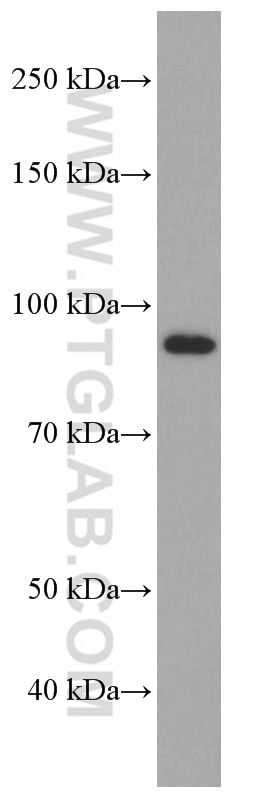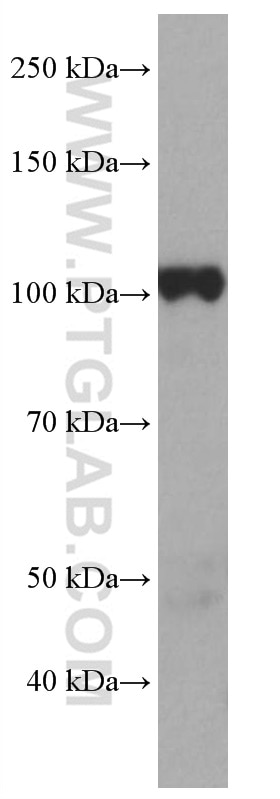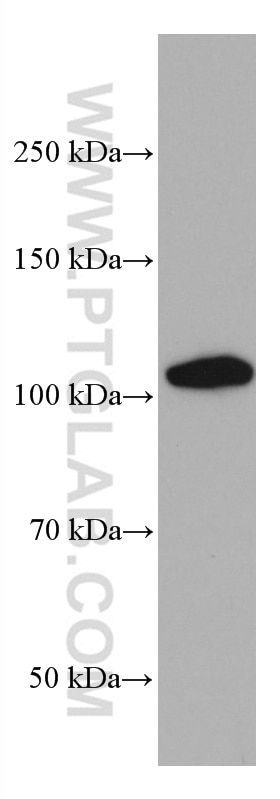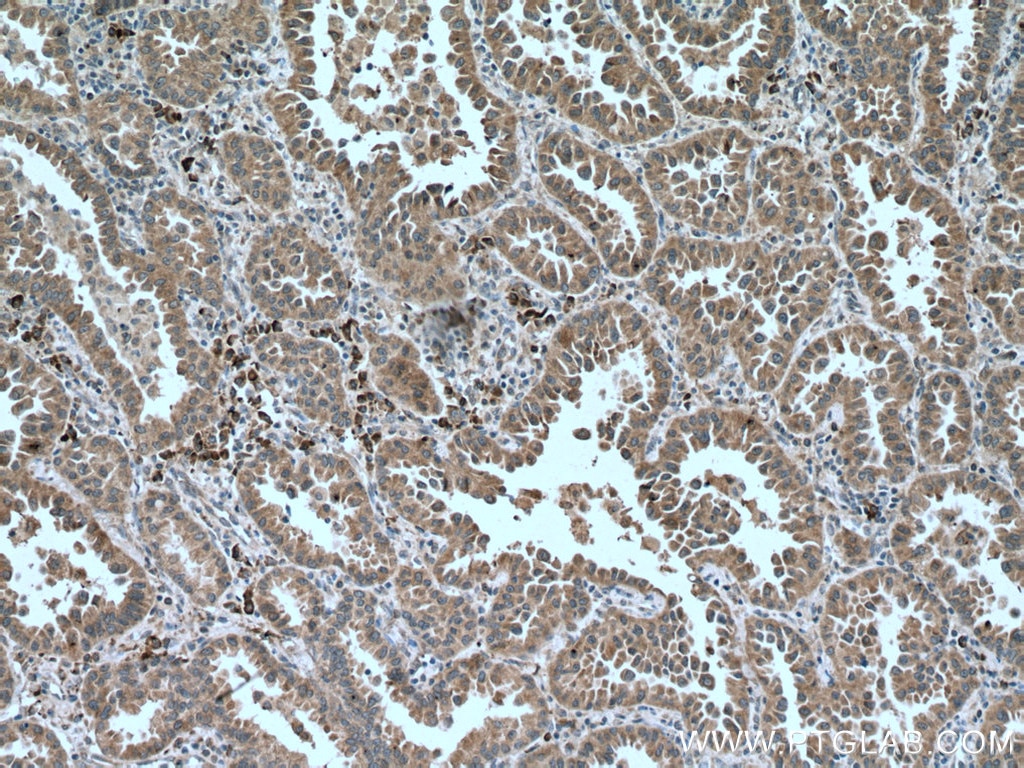Anticorps Monoclonal anti-PHEX
PHEX Monoclonal Antibody for WB, IHC, Indirect ELISA
Hôte / Isotype
Mouse / IgG1
Réactivité testée
Humain, porc, rat
Applications
WB, IHC, Indirect ELISA
Conjugaison
Non conjugué
CloneNo.
1D4B2
N° de cat : 66934-1-PBS
Synonymes
Galerie de données de validation
Informations sur le produit
66934-1-PBS cible PHEX dans les applications de WB, IHC, Indirect ELISA et montre une réactivité avec des échantillons Humain, porc, rat
| Réactivité | Humain, porc, rat |
| Hôte / Isotype | Mouse / IgG1 |
| Clonalité | Monoclonal |
| Type | Anticorps |
| Immunogène | PHEX Protéine recombinante Ag20290 |
| Nom complet | phosphate regulating endopeptidase homolog, X-linked |
| Masse moléculaire calculée | 749 aa, 86 kDa |
| Poids moléculaire observé | 76-80 kDa, 95-100 kDa |
| Numéro d’acquisition GenBank | BC105059 |
| Symbole du gène | PHEX |
| Identification du gène (NCBI) | 5251 |
| Conjugaison | Non conjugué |
| Forme | Liquide |
| Méthode de purification | Purification par protéine G |
| Tampon de stockage | PBS only |
| Conditions de stockage | Store at -80°C. 20ul contiennent 0,1% de BSA. |
Informations générales
PHEX encodes a transmembrane endopeptidase that belongs to the type II integral membrane zinc-dependent endopeptidase family. The protein usually expressed in osteocytes, osteoblasts and odontoblasts, and it was thought to be involved in bone and dentin mineralization and renal phosphate reabsorption (PMID:28982589). Otherwise, studies showed that PHEX transcripts were identified in human osteosarcoma-derived cells and in differentiated mouse osteoblasts, but not in immature mouse preosteoblasts, indicating the stage-specific expression of the protein (PMID:9199999). Defects in PHEX are responsible for X-linked hypophosphatemic rickets (HYP) (PMID:22339660). Glycosylation of proteins results in higher molecular weight, and about 95-100 kDa band were reported (PMID:25128529; PMID:18728349).









